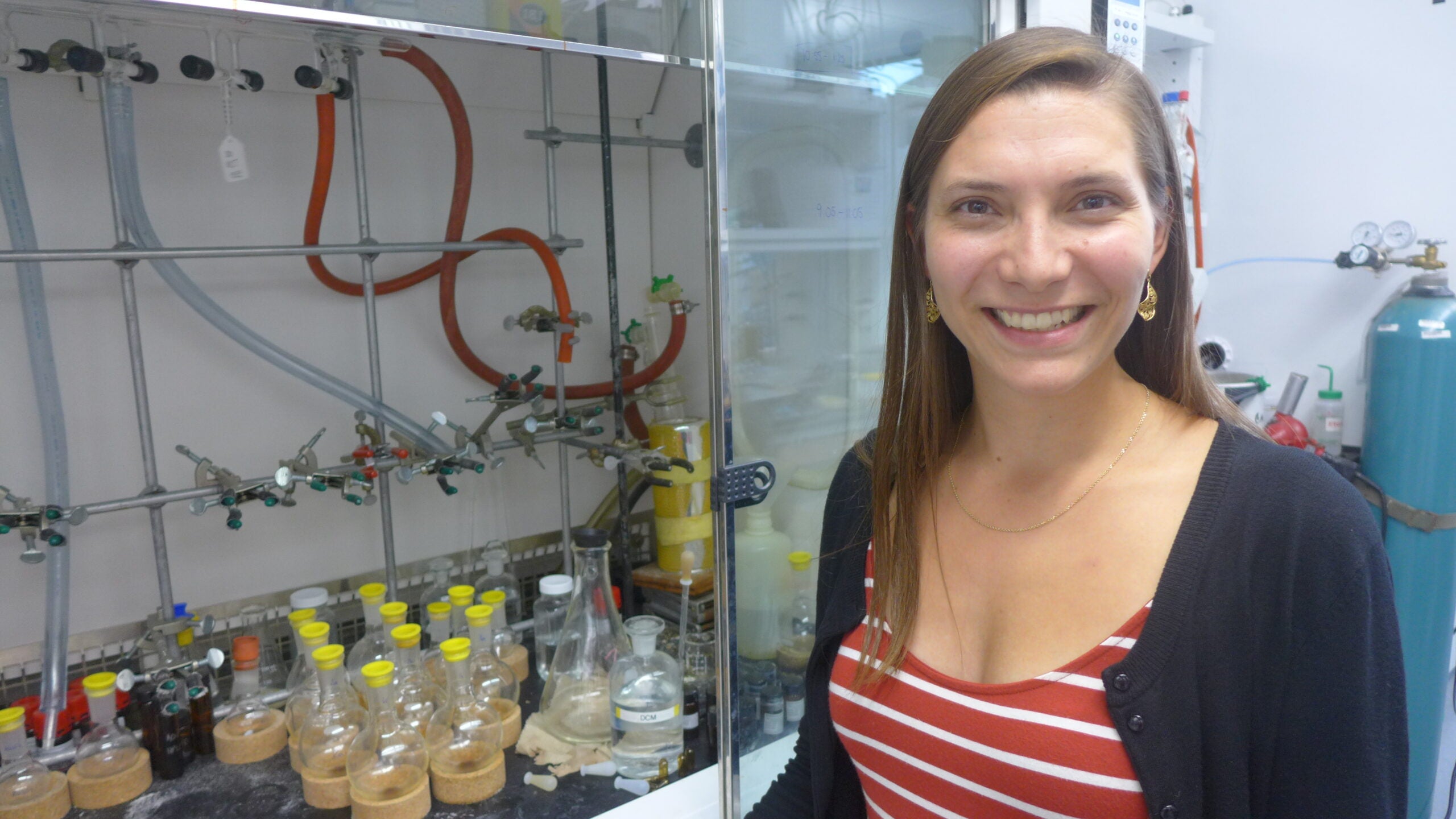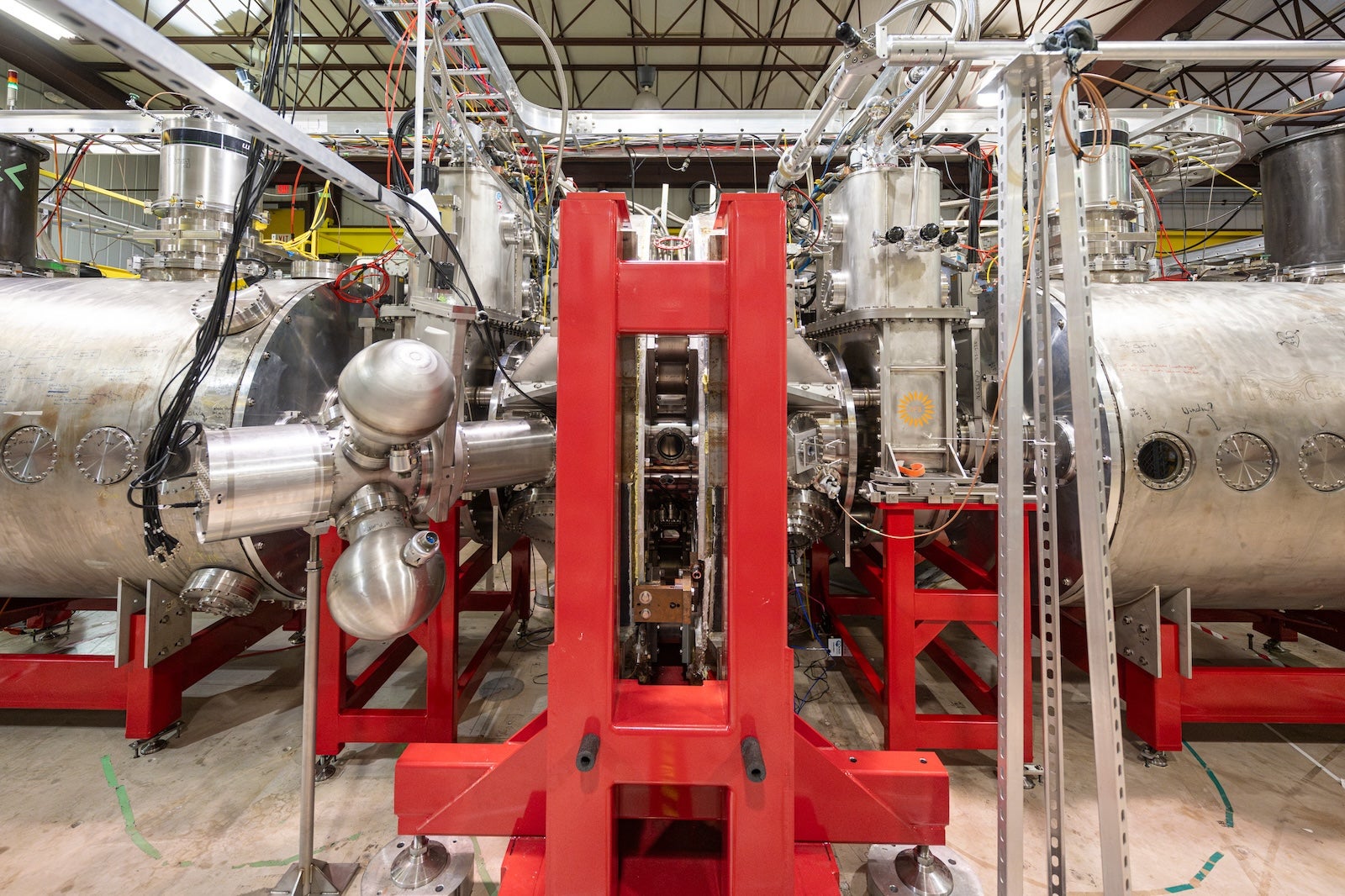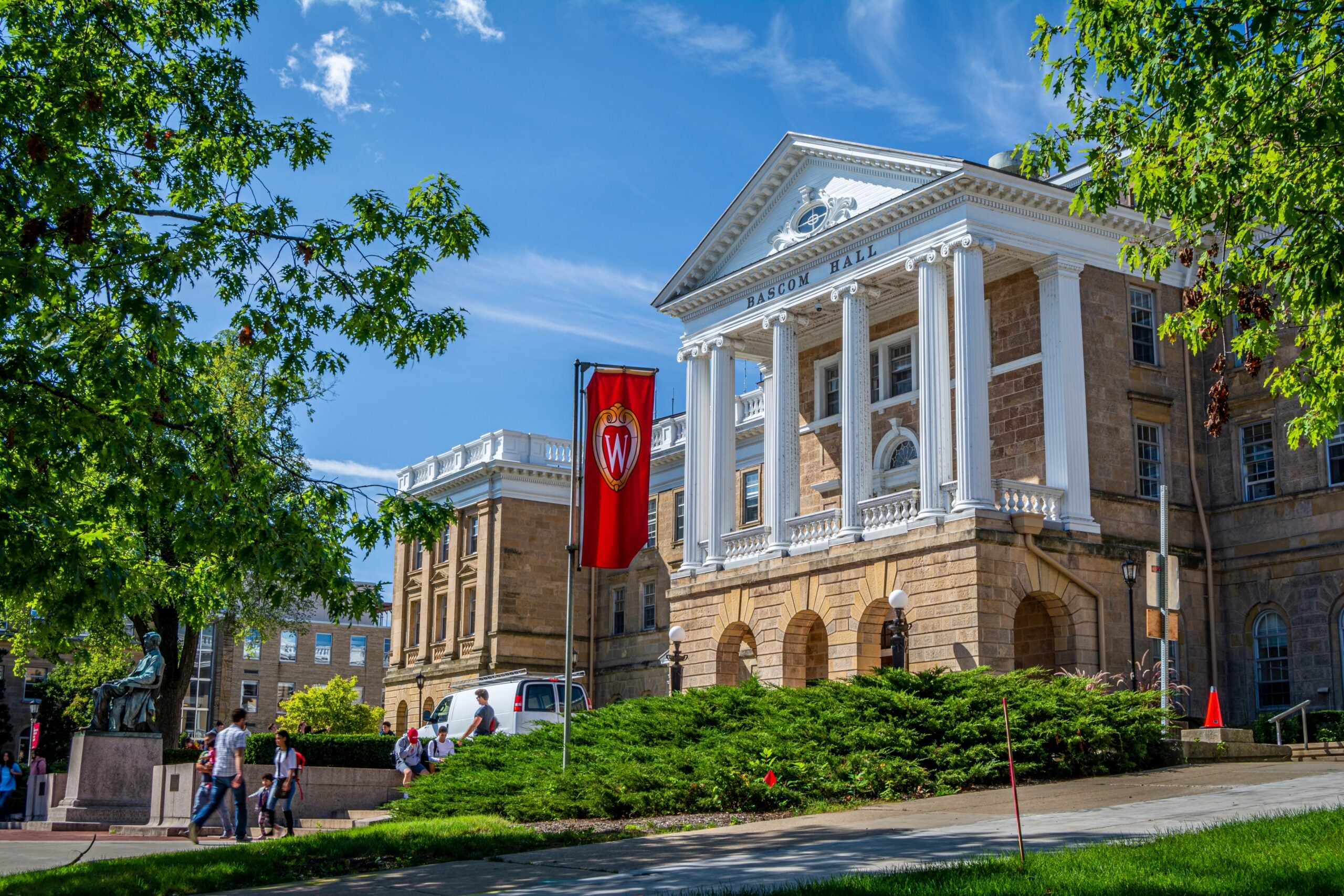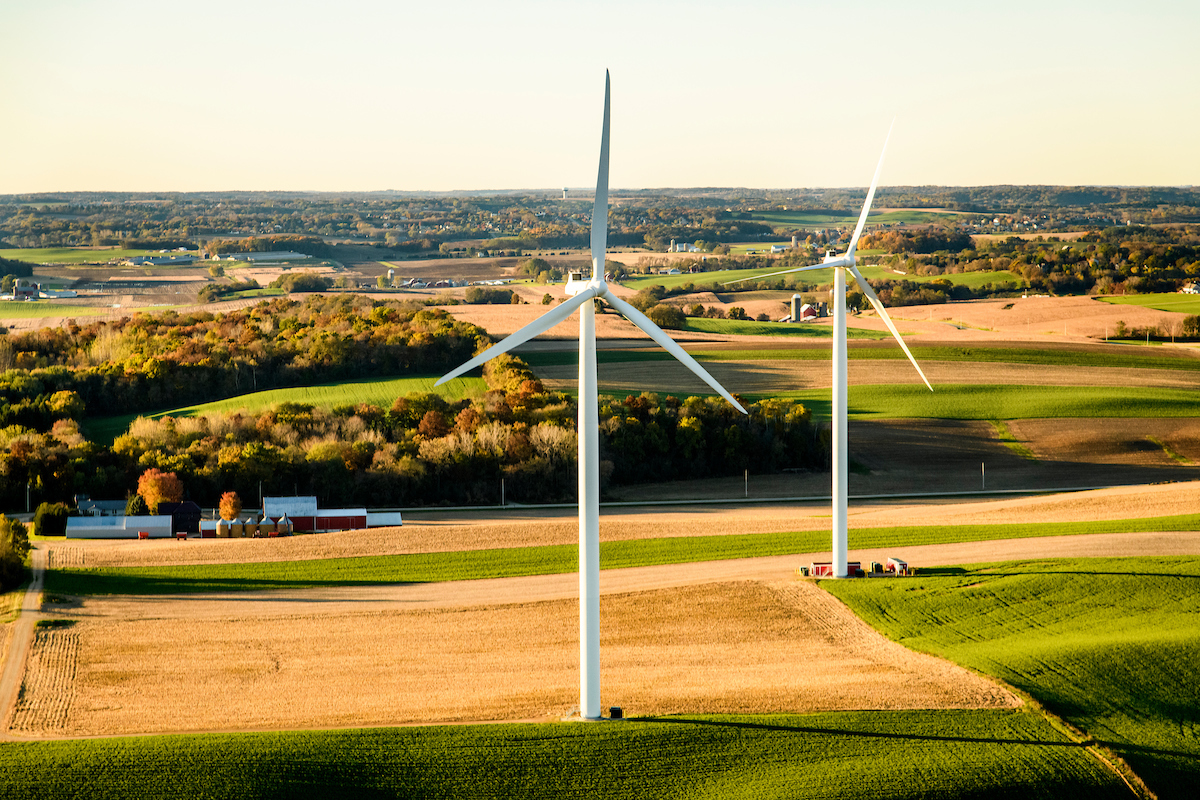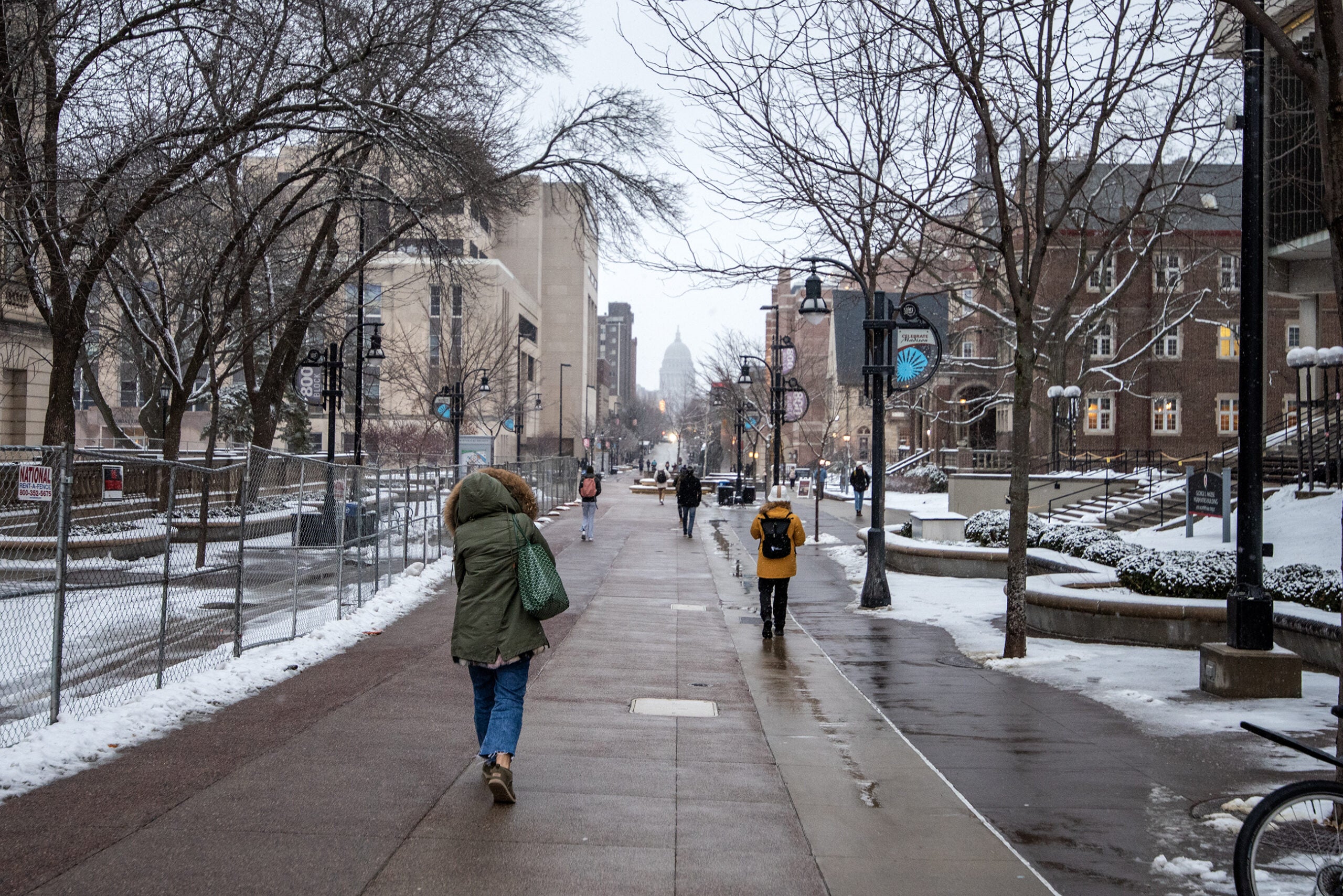The Wisconsin Energy Institute is buzzing with about 400 scientists, graduate students and staff.
It boasts the University of Wisconsin System’s largest grant, $265 million over a decade. But, its sunsets next year, and the Energy Institute is at a pivotal point, both in leadership and funding.
The institute submitted its proposal Sept. 30 to renew a massive federal grant from the U.S. Department of Energy, at a time when the state has withdrawn its funding.
News with a little more humanity
WPR’s “Wisconsin Today” newsletter keeps you connected to the state you love without feeling overwhelmed. No paywall. No agenda. No corporate filter.
Nuclear engineer Michael Corradini, who founded the Wisconsin Energy Institute a decade ago, recently retired. He said the original blueprint for the building called for a building twice its size. One side is designed to come off for expansion.
But expansion now is unlikely. Last year, the state eliminated its $8.1 million in funding for this renewable energy research hub, and the university stepped in to fill the gap for the biennium. But now, Corradini said its long-term funding source is still unknown.
“I’m not going to worry about where it comes from, just as long as it comes from somewhere,” Corradini said, looking out of the third-floor conference room with its floor-to-ceiling windows jutting out over University Avenue in Madison. “Originally, it came from the state, but now hopefully from the state and/or campus.”
Over the years, Corradini said the institute amassed more than 50 patents and spawned two startup companies. Many of the scientists work on technologies that break down biomass into fuel.
Post-doctoral researcher Rebecca Smith, 29, engineers cell walls in poplar trees to make them a better biofuel source. She can count at least nine disciplines working in labs around her, making it easy to find a sounding board.
“Sometimes all it takes is that someone who has a slightly different perspective saying, ‘This might be a stupid idea, but did you think about trying this?’ And then you go, ‘Well, no, I didn’t because I’m too close to the problem and didn’t realize that could work,’” Smith said.
Interdisciplinary research has long been heralded as the key to solving complex problems. But a recent study by the Australian Research Council reveals grant proposals drawing in a broad array of academic fields are less likely to be funded.
Gabriele Bammer studies interdisciplinary research at Australian National University in Canberra. She said the people who award these grants don’t necessarily understand the challenges.
“The pressure to perform, the pressure to publish papers and to keep getting grants, doesn’t leave people with enough time and energy to be developing the sorts of things that are actually necessary,” Bammer said. “There are no rewards for pulling people together, for transmitting knowledge, for starting a new journal.”
Economist Ian Coxhead will serve as the Wisconsin Energy Institute’s interim director for a year. He hopes to pull in more social scientists to participate in research underway. Kate Archer Kent/WPR
Economist Ian Coxhead doesn’t see an uphill climb. Coxhead will be the institute’s interim director for a year, along with being the chair of the Department of Agricultural and Applied Economics at the University of Wisconsin-Madison. Coxhead is an outsider, but he thinks he’ll be able to recruit social scientists like himself.
“The huge opportunity that I have is to turn this institute into a cross-disciplinary landing pad for all kinds of activities associated with energy, sustainability and climate change,” Coxhead said.
Smith, the post-doctoral researcher, said she took one look at the spacious, modern labs and was sold on her job. She also likes answering to a high-stakes federal grant for her work with the Great Lakes Bioenergy Research Center housed in the institute.
“It’s very valuable to be able to talk to those people in industry and say, ‘What are you looking for?’ ‘What makes a good biofuel crop that you would want to take on, and try to process and market?’” Smith said.
Coxhead is hopeful the U.S. Department of Energy will keep their research going by funding their five-year, $142 million proposal. Of that, $85 million would go to UW-Madison. The rest would be divvied up among research partners, including Michigan State University. He expects a decision by year’s end.
Wisconsin Public Radio, © Copyright 2026, Board of Regents of the University of Wisconsin System and Wisconsin Educational Communications Board.

